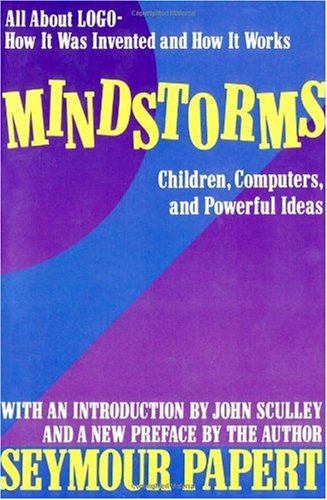How a Lack of Vocabulary Can Turn a Child Off to a Subject
Consider the case of a child I observed through his eighth and ninth years. Jim was a highly verbal and mathophobic child from a professional family. His love for words and for talking showed itself very early, long before he went to school. The mathophobia developed at school. My theory is that it came as a direct result of his verbal precocity. I learned from his parents that Jim had developed an early habit of describing in words, often aloud, whatever he was doing as he did it. This habit caused him minor difficulties with parents and preschool teachers. The real trouble came when he hit the arithmetic class. By this time he had learned to keep "talking aloud" under control, but I believe that he still maintained his inner running commentary on his activities. In his math class he was stymied: He simply did not know how to talk about doing sums. He lacked a vocabulary (as most of us do) and a sense of purpose. Out of this frustration of his verbal habits grew a hatred of math, and out of the hatred grew what the tests later confirmed as poor aptitude.
For me the story is poignant. I am convinced that what shows up as intellectual weakness very often grows, as Jim's did, out of intellectual strengths. And it is not only verbal strengths that undermine others. Every careful observer of children must have seen similar processes working in different directions: For example, a child who has become enamored of logical order is set up to be turned off by English spelling and to go on from there to develop a global dislike for writing.
Notes:
Folksonomies: phonetics
Taxonomies:
/education/school (0.505792)
/hobbies and interests/reading (0.435919)
/family and parenting/children (0.402996)
Keywords:
inner running commentary (0.989172 (neutral:0.000000)), verbal precocity (0.919838 (neutral:0.000000)), verbal strengths (0.871214 (neutral:0.000000)), verbal habits (0.843430 (negative:-0.886274)), verbal skills (0.821809 (positive:0.492042)), professional family (0.769004 (positive:0.857065)), mathophobic child (0.751810 (positive:0.857065)), direct result (0.741558 (neutral:0.000000)), early habit (0.739736 (negative:-0.257942)), real trouble (0.738495 (negative:-0.726756)), minor difficulties (0.733072 (negative:-0.611241)), preschool teachers (0.730346 (negative:-0.611241)), arithmetic class (0.722352 (negative:-0.726756)), careful observer (0.719254 (positive:0.203763)), intellectual strengths (0.713681 (negative:-0.333825)), intellectual weakness (0.712544 (negative:-0.247639)), global dislike (0.712464 (negative:-0.200976)), poor aptitude. (0.710811 (negative:-0.856173)), logical order (0.701529 (negative:-0.200976)), similar processes (0.699701 (positive:0.203764)), different directions (0.699320 (positive:0.203763)), math class (0.699178 (negative:-0.316796)), Case study (0.696444 (positive:0.492042)), Math-proficient children (0.695211 (negative:-0.463372)), English spelling (0.687878 (negative:-0.200976)), Jim (0.598034 (positive:0.599123)), hatred (0.552134 (negative:-0.871224)), words (0.529728 (positive:0.118388)), parents (0.525019 (negative:-0.434592)), illogic (0.487560 (negative:-0.463372))
Entities:
Jim:Person (0.817034 (positive:0.020920))
Concepts:
Scientific method (0.906714): dbpedia | freebase
Learning (0.862070): dbpedia | freebase | opencyc
Arithmetic (0.778806): dbpedia | freebase | opencyc
Orthography (0.719882): dbpedia | freebase
Child (0.709458): dbpedia | freebase | opencyc
Case study (0.709405): dbpedia | freebase
Habit (0.709159): dbpedia
Skill (0.677796): dbpedia | freebase






